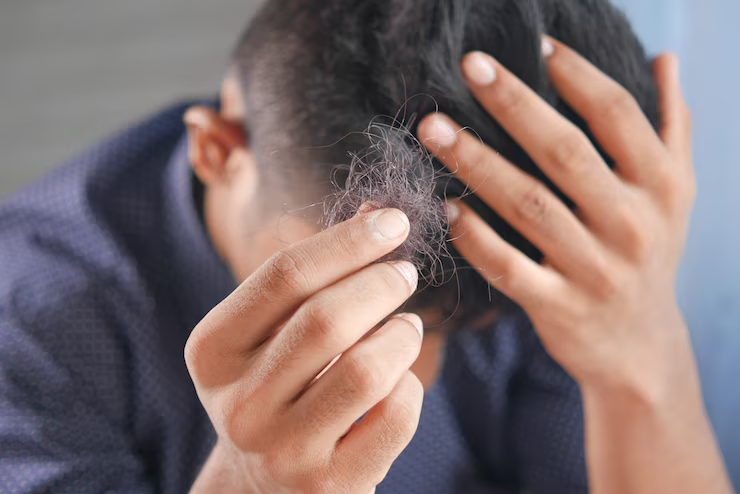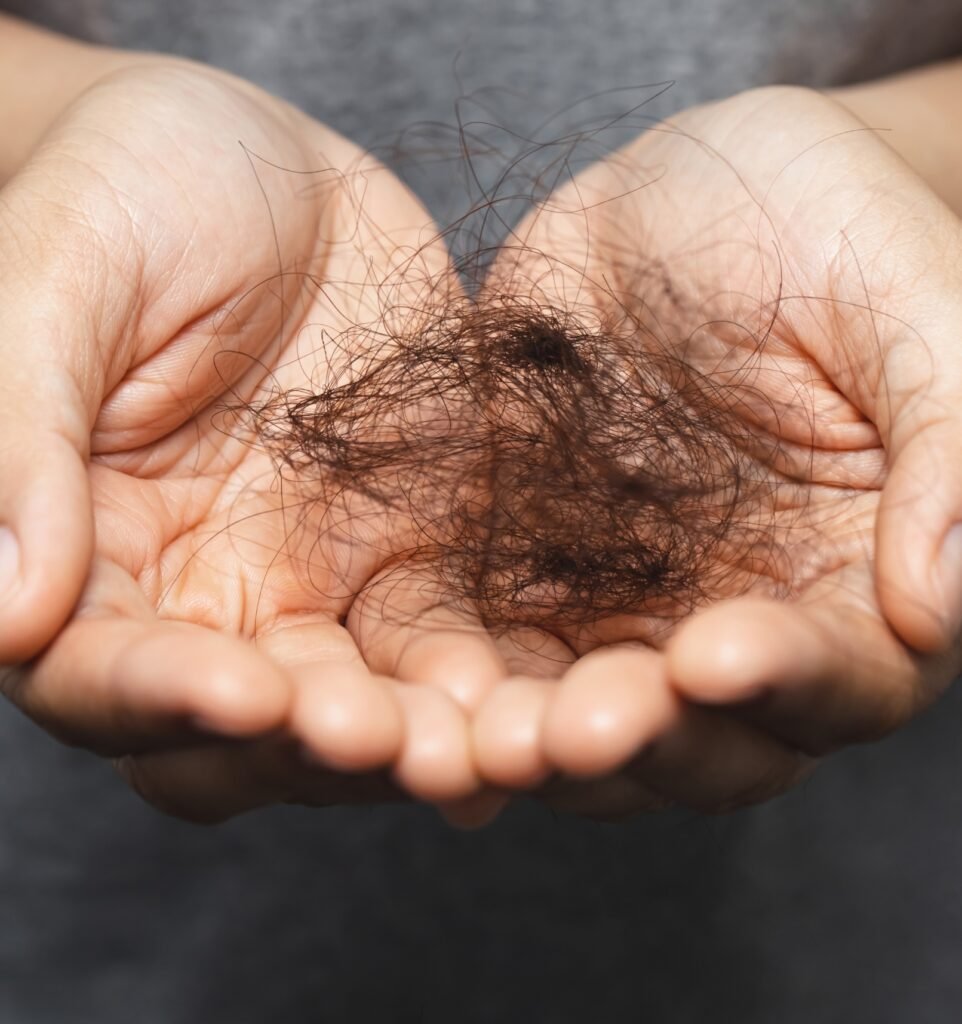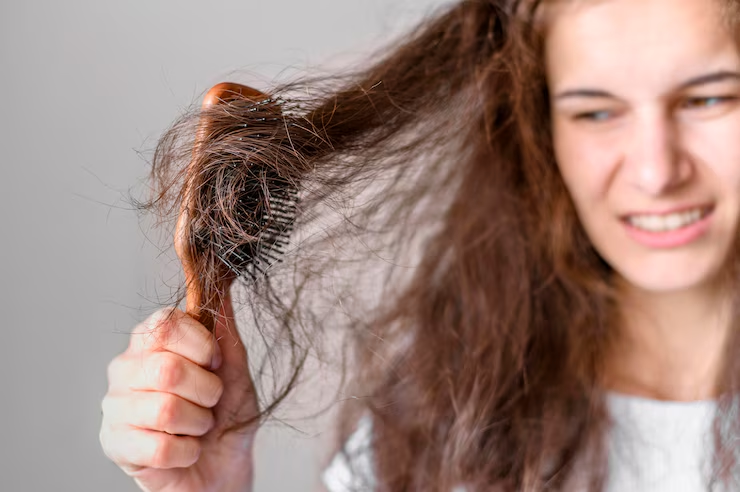HAIR DISORDER - HAIRFALL
Hair fall, also known as alopecia, is a common condition where an individual experiences excessive hair shedding from the scalp or other body parts. While losing some hair daily is normal—typically 50 to 100 strands—significant or noticeable hair loss may signal an underlying issue. Hair fall can affect people of all ages, genders, and ethnicities, and its causes are diverse, ranging from genetics to lifestyle factors and medical conditions.

CAUSES OF HAIRFALL

Certain Medication
Genetic Factors
Lifestyle Factor
Hormonal Change
TREATMENT FOR HAIRFALL

Minoxidil (Rogaine):
- A solution or foam that is applied to the scalp, which is believed to encourage hair growth.
- Sometimes useful in day-to-day or in those who have thinning hair from androgenetic alopecia.
Finasteride (Propecia):
- A tablet formulation for men that prevents him from baldness due to dihydrotestosterone.
Biotin and Multivitamin Supplements:
- These are especially indicated in patients who are deficient in certain nutrients and are useful in hair strengthening and regrowth.
Platelet-Rich Plasma (PRP) Therapy:
- This involves drawing blood, separating it, and introducing it to regions of the scalp in an attempt to stimulate hair growth.
Hair Transplant Surgery:
- This procedure includes taking one or more hair-bearing scalp portions and implanting them on bald patches.
Healthy Diet:
- Include such foods beneficial for hair loss treatment include, proteins, zinc, and iron, and eggs, fish, nuts, etc.
Scalp Care:
- The scalp can be massaged with coconut, argan, or castor oil to ensure proper blood flow.
Avoid Harsh Treatments:
- Use of hair styling devices, chemical hair treatments, and braids should be avoided.
Aloe Vera:
- It helps keep the oil on top of the head and helps lessen inflammation while promoting hair growth.
Onion juice:
- It is useful in improving blood circulation in the scalp and hair follicles.
Green tea:
- Washing the hair with green tea strengthens the hair follicles.
PREVENTION OF HAIRFALL
Balanced Diet
Welcome food enriched with omega-3 fatty acids and vitamins and high protein content.
Gentle Hair Care
Opt for shampoo and conditioner devoid of sulfate or any chemicals as it wipes off essential oil particles.
Protect Hair
Cover the hair while stepping outside with a scarf or a hat in order to protect it from excess sun exposure.
Stress Management
Lower the stress levels by practicing yoga, exercise, or meditation.
Regular Trims
Cut the fractured edges to avoid extensive depletion of hair.
Avoid Smoking & Alcohol
These habits can weaken hair
follicles.

